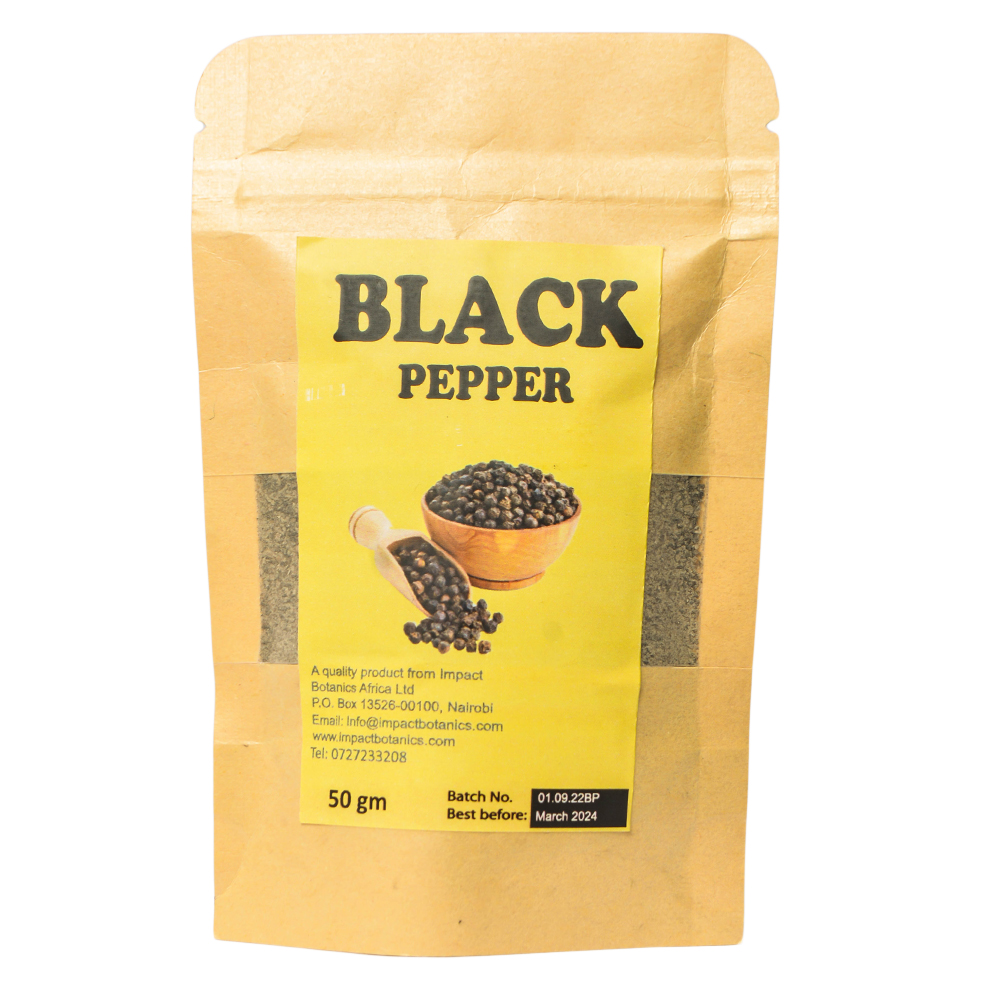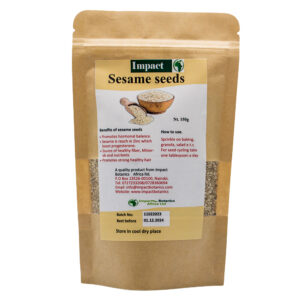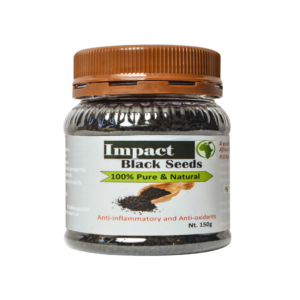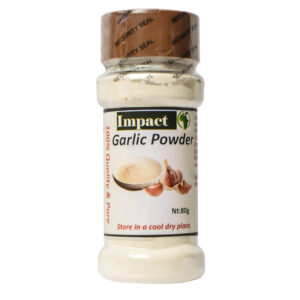Description
Black pepper, scientifically known as Piper nigrum, is one of the most commonly used spices worldwide, prized for its distinct flavor and aroma. It is derived from the dried fruit of the pepper plant, which is native to India and other parts of Southeast Asia. Here are some key aspects of black pepper:
- Flavor and Aroma: Black pepper has a sharp, pungent flavor with earthy and spicy undertones. It adds depth and complexity to dishes and is often used to enhance the taste of savory foods. The aroma of black pepper is warm and aromatic, contributing to its appeal in cooking and seasoning.
- Bioactive Compounds: Black pepper contains several bioactive compounds, including piperine, which is responsible for its characteristic flavor and many of its health benefits. Piperine has been shown to have antioxidant, anti-inflammatory, and antimicrobial properties, making black pepper a valuable ingredient in traditional medicine and culinary practices.
- Digestive Health: Black pepper is known to stimulate digestion and promote gastrointestinal health. Piperine helps increase the secretion of digestive enzymes in the stomach, which aids in the breakdown of food and enhances nutrient absorption. Black pepper is often used in cooking to improve digestion and alleviate symptoms of indigestion, bloating, and gas.
- Antioxidant Properties: Piperine, along with other compounds found in black pepper, exhibits antioxidant activity, helping to neutralize harmful free radicals in the body. Antioxidants help protect cells from oxidative damage and reduce the risk of chronic diseases such as heart disease, cancer, and neurodegenerative disorders.
- Anti-inflammatory Effects: Piperine has been shown to have anti-inflammatory effects, which may help reduce inflammation and alleviate symptoms of inflammatory conditions such as arthritis, rheumatism, and gout. By inhibiting inflammatory pathways in the body, black pepper may help relieve pain and improve joint function.
- Weight Management: Some research suggests that piperine in black pepper may help support weight loss and weight management efforts. Piperine has been shown to inhibit the formation of fat cells and regulate lipid metabolism, leading to reductions in body fat and body weight. Including black pepper in meals may help enhance metabolism and promote fat burning.
- Brain Health: Piperine has been studied for its potential cognitive-enhancing effects. Research suggests that piperine may help improve cognitive function, memory, and attention by modulating neurotransmitter activity in the brain. Black pepper may also have neuroprotective properties, helping to protect against age-related cognitive decline and neurodegenerative diseases.
- Respiratory Health: Black pepper has been used in traditional medicine to alleviate respiratory symptoms such as coughs, congestion, and asthma. The warming and expectorant properties of black pepper may help loosen mucus and phlegm, making it easier to expel from the respiratory tract. Drinking black pepper tea or inhaling steam with black pepper can help relieve respiratory discomfort.
- Blood Sugar Regulation: Some studies suggest that piperine in black pepper may help regulate blood sugar levels and improve insulin sensitivity. Piperine has been shown to inhibit enzymes involved in carbohydrate metabolism, leading to reductions in blood glucose levels and improvements in insulin function. Including black pepper in meals may help support blood sugar control and reduce the risk of diabetes.
- Culinary Uses: Black pepper is a versatile spice used in a wide range of savory dishes, including meats, poultry, seafood, vegetables, soups, stews, and sauces. It can be used whole, cracked, or ground, depending on the desired intensity of flavor. Black pepper pairs well with other spices and herbs and is often used in combination with salt to season foods.
- Overall, black pepper is not only a popular culinary spice but also a functional food with numerous health benefits. Whether used to enhance the flavor of dishes or promote digestive health, black pepper adds both taste and nutritional value to meals. As with any food or spice, moderation is key, and individuals with certain medical conditions should consult with a healthcare professional before making significant dietary changes.






Reviews
There are no reviews yet.